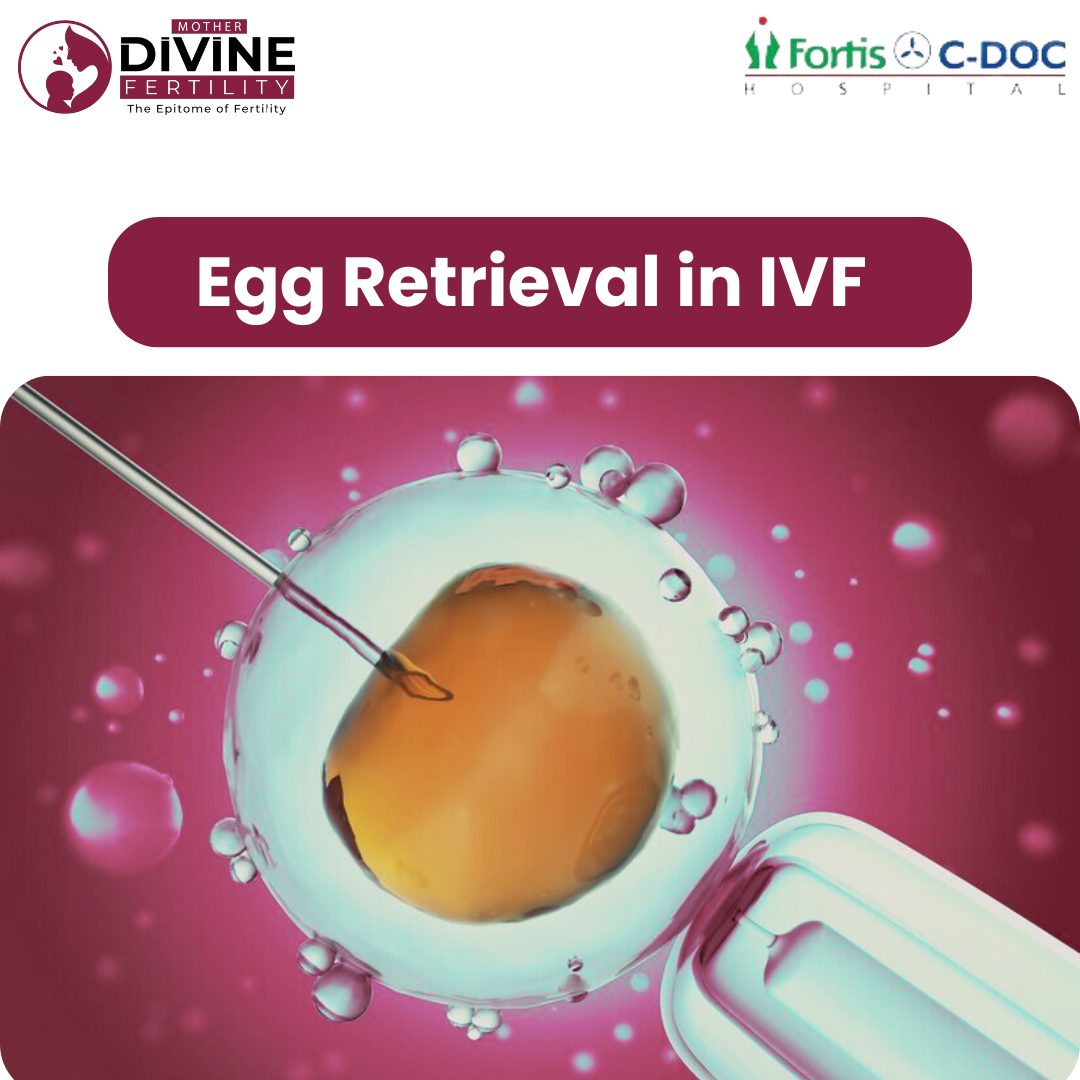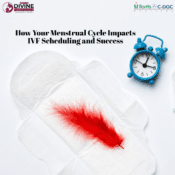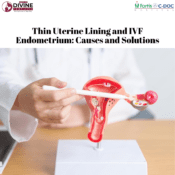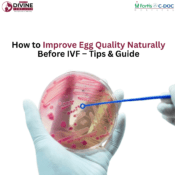

Understanding Egg Retrieval in IVF: Procedure, Risks, and Recovery
1. Introduction
For many hopeful parents, In Vitro Fertilization (IVF) is a journey filled with a mix of emotions—hope, anxiety, excitement, and uncertainty. One of the most crucial stages in this journey is egg retrieval, also known as IVF egg collection. It’s a pivotal moment that determines how many eggs are available for fertilization, directly impacting the outcome of the IVF cycle.
Understanding this step is vital—not just from a clinical perspective, but also emotionally and physically. Whether you’re undergoing IVF for the first time or supporting a partner through it, knowing what to expect during egg retrieval can ease anxiety, improve cooperation with your medical team, and enhance your overall IVF experience.
This blog will walk you through the entire egg retrieval process—from preparation to recovery—covering the procedure itself, potential risks, tips for a smooth recovery, and frequently asked questions. If you’re searching for the best IVF center in Delhi, this guide also helps you understand what a reliable clinic should offer.
Primary Keywords: Egg retrieval in IVF, IVF egg collection process
Additional Keywords: IVF recovery tips, Risks of egg retrieval, Egg retrieval recovery, IVF procedure step-by-step, Best IVF center in Delhi
2. What Is Egg Retrieval in IVF?
Egg retrieval is a medical procedure used to collect mature eggs from a woman’s ovaries for use in IVF treatment. This is the step that follows ovarian stimulation, where hormones are administered to produce multiple eggs instead of the usual one per cycle.
Typically, egg retrieval happens about 34 to 36 hours after a trigger shot (usually hCG or Lupron), and it precedes fertilization and embryo transfer in the IVF timeline. The eggs retrieved are either fertilized immediately with sperm to create embryos or frozen for future use.
In the overall IVF procedure step-by-step, egg retrieval represents the bridge between hormone preparation and embryo development, making it a key success factor for any fertility treatment.
3. Preparing for Egg Retrieval
Ovarian Stimulation and Monitoring
Before retrieval, patients undergo 10 to 12 days of hormone injections to stimulate the ovaries. Medications like FSH (follicle-stimulating hormone) and LH (luteinizing hormone) help mature multiple follicles.
Regular ultrasounds and blood tests are performed during this time to track follicular growth and hormone levels. When the eggs are ready (usually when follicles reach 18–20mm), the trigger shot is scheduled.
The Trigger Shot
The trigger injection, usually human chorionic gonadotropin (hCG) or Lupron, is given 34–36 hours before retrieval. It finalizes egg maturation and times ovulation precisely to ensure eggs are retrieved before natural release.
Pre-Procedure Instructions
- Fasting: No food or drink 8 hours before the procedure.
- No perfumes, deodorants, or makeup on the day of retrieval to maintain sterile conditions.
- Shaving before egg retrieval may be recommended by your clinic, especially in the vaginal area.
Emotional and Physical Preparation
It’s normal to feel anxious. Deep breathing, yoga, journaling, or talking to a counselor can help. Physically, staying hydrated and avoiding heavy activity in the days leading up to the procedure is advised.
4. Step-by-Step Egg Retrieval Procedure
Arrival at the IVF Clinic
On the day of retrieval, you’ll be asked to arrive early—usually two hours before your scheduled procedure. The staff will confirm your vitals and prepare you for sedation.
Anesthesia and Sedation
Egg retrieval is usually done under conscious sedation or light general anesthesia, ensuring you feel no pain during the procedure. You’ll be monitored closely throughout.
Transvaginal Ultrasound-Guided Aspiration
A thin needle is inserted through the vaginal wall into the ovaries under ultrasound guidance. The follicular fluid, which contains the eggs, is suctioned into a test tube.
Duration of the Procedure
The procedure typically takes 20–30 minutes. It is performed in a sterile surgical suite within the fertility center.
Number of Eggs Retrieved
A "good" number varies, but 8 to 15 mature eggs are often considered optimal. However, even a few quality eggs can result in successful pregnancies.
5. What Happens After Egg Retrieval?
Recovery Room Experience
You’ll be taken to a recovery room where nurses monitor your vitals. Mild grogginess, cramping, or dizziness is normal.
Common Post-Procedure Symptoms
- Mild soreness or cramping
- Bloating due to enlarged ovaries
- Light spotting
- Fatigue from anesthesia
When You Can Go Home
Most patients are discharged within 1–2 hours post-procedure. It’s essential to have someone accompany you.
Rest and Activity Guidelines
- Avoid strenuous activity or intercourse for at least 48 hours
- Light walking is encouraged for circulation
- No baths after egg retrieval for at least 24–48 hours to avoid infection—stick to showers
6. Risks and Possible Complications
Common Side Effects
- Abdominal discomfort
- Nausea from anesthesia
- Mild bleeding from the puncture site
Ovarian Hyperstimulation Syndrome (OHSS)
One of the most significant risks, OHSS, happens when ovaries over-respond to stimulation. Symptoms include:
- Severe bloating and pain
- Rapid weight gain
- Shortness of breath
Preventative strategies include adjusting hormone doses or switching trigger shots.
Signs of Infection After Egg Retrieval
Though rare, signs include:
- Fever over 100.4°F (38°C)
- Foul-smelling discharge
- Severe abdominal pain
Contact your fertility specialist immediately if these symptoms occur.
Emotional Effects
Many women experience a hormone crash after egg retrieval, with symptoms like mood swings, sadness, or fatigue. These are normal and usually short-lived.
7. Recovery Timeline
Day 1–2 Post-Retrieval
- Rest, fluids, and light meals
- Use heating pads or doctor-approved pain relievers
- Watch for any signs of complications
When to Contact Your Fertility Clinic
Reach out if you experience:
- Severe pain not relieved by medication
- Heavy bleeding
- Vomiting or dehydration
- Fever
Resuming Normal Activities
Most women can resume light activities within 2–3 days and return to work if they feel well enough.
Preparing for Embryo Transfer
- Fresh embryo transfer: Usually done 3–5 days after retrieval
- Frozen embryo transfer: Done weeks or months later, depending on your cycle and clinic's recommendation
- Be aware: How many days after egg retrieval is embryo transfer depends on embryo development and medical readiness
8. Tips for a Smoother Recovery
1. Prioritize Rest and Hydration
Sleep helps your body heal. Drink water and electrolyte drinks to reduce bloating.
2. Follow a Balanced Diet
Avoid processed or salty foods. Eat protein-rich meals and fresh fruits to support hormonal balance.
3. Use Gentle Pain Relief
Ask your doctor before taking any medication. Most clinics recommend acetaminophen for mild cramps.
4. Enlist Support
Whether it’s a partner, parent, or friend—have someone assist with meals and emotional support.
5. Mental Health Matters
Hormonal shifts can cause anxiety or sadness. Mindfulness, therapy, or simply talking about your feelings can help you stay balanced.
9. FAQs About Egg Retrieval in IVF
Q1: How many eggs are usually retrieved?
The number varies, but on average 8–15 mature eggs are considered a good yield.
Q2: Is egg retrieval painful?
No. Sedation or anesthesia ensures that the procedure is painless. You may experience mild cramps afterward.
Q3: How soon can I resume work?
Most patients return to work within 2–3 days, depending on how they feel.
Q4: What happens if no eggs are retrieved?
It’s rare, but if it happens, your doctor will review your treatment plan. Future cycles may use adjusted protocols.
Q5: Can I freeze eggs during IVF?
Yes. If you’re not ready for transfer, the eggs (or embryos) can be frozen for future use.
10. Conclusion
Egg retrieval is a cornerstone in the IVF process. While it may seem intimidating, understanding the steps involved can significantly reduce stress and build confidence. With expert guidance, personalized care, and mental preparedness, this procedure can become a manageable and successful part of your IVF journey.
If you're looking for professional, compassionate care, consider consulting the best IVF center in Delhi—a facility that prioritizes patient comfort, clinical expertise, and cutting-edge technologies.
For more support, expert guidance, and transparency around IVF cost in Delhi, IVF success rates, or the best fertility hospital in Delhi, don’t hesitate to reach out to a reputable IVF clinic in Delhi NCR today.





